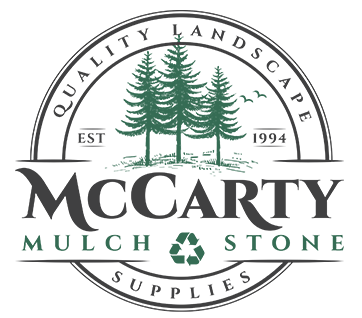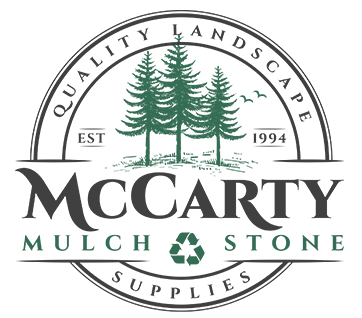6 Benefits of Using Compost in Your Garden
Compost is king. If you could only add one amendment to your garden, it would most certainly be composted. There are many other soil amendments used to solve specific issues, such as:
- Add sulfur or lime to adjust the pH levels of your soil.
- Add sand to heavy clay soil to make it more workable and adjust water drainage.
- Add peat moss to sandy soil to increase water retention.
- Add fertilizer to increase nutrients for your plants.
Or…you can just add compost to your soil and do all of these. Compost is like the full-body workout for your garden. Use a specialized amendment if you have a prominent problem. Otherwise, compost is the least expensive yet most effective way to keep your garden strong and healthy.
Here are the nine most obvious benefits:
1. Compost Improves Soil Structure
Adding compost improves drainage in clay soils and increases water retention in sandy soils enhancing the structure of both.
Soil structure is the foundation for any healthy garden. In good soil, different materials combine, forming aggregates which are small, irregularly shaped particles that clump together. This clumping creates spaces and channels in the soil which allows air circulation and water drainage.
These channels are also easy paths for plant roots to follow. Plants in loose, crumbly soil typically develop deeper root systems than plants in heavy soils making it more likely your plants can reach nutrients and water held deeper in the dirt.
Neither sand nor clay absorbs water well. Water drains too fast between the large particles found in sand, and it gets trapped by the tiny particles found in clay. The organic material in compost absorbs water far better than sand but is more willing to release it than clay.
2. Compost Adds (some) Nutrients
Despite many that say compost is not a fertilizer, no one can say that it doesn’t contain some nutrients.
Mature compost can contain small amounts of a few primary nutrients:
Roughly 0.6.-0.9% phosphorus, 0.2-0.5% potassium, and 1-2% nitrogen, It can also include low levels of secondary nutrients such as calcium, magnesium, and sulfur.
More notably, it provides essential micronutrients like copper, zinc, iron, and manganese which are crucial, in minute quantities, to growing healthy plants and are often missing in synthetic fertilizers.
3. Compost Adds and Attracts Beneficial Microbes
“Think of composting as the act of growing microorganisms.” – Compost Fundamentals, Washington State University.
You may have heard the term “beneficial microbes;” it isn’t just a gardening buzzword. The fact that compost plays host to a plethora of living creatures and plays a large part in nurturing others is what sets it apart from the other soil amendments. The smallest of these creatures play perhaps the most significant roles.
Micro-organisms improve soil structure because they help the soil aggregate. The hyphae of some fungi for example and actinomycetes that thrive in organic soils also contribute to soil aggregation. Because coconut coir and peat moss are sterile materials, they don’t provide these benefits to the soil.
Some microbes help reduce and even prevent plant diseases while yet others can establish the mycorrhizal fungi which allow plant roots access to nutrients below the reach of their roots.
4. Compost Reduces Plant Diseases
Specific soil bacteria and various beneficial fungi sustained by compost help prevent an extensive range of plant diseases reducing the need for fungicides (for the bad fungi) and other chemicals, many of which can be toxic to varying degrees to animals, humans, and the beneficial microbes discussed previously.
Compost is used to combat avocado root-rot in both California and Brazil, and it is reported to have potential in fighting tomato diseases.
A major British review identified four different ways microbes are currently believed to fight soil-borne diseases. Beneficial microbes can:
- Parasitize pathogens
- Activate disease-resistant genes in plants
- Out-compete other organisms for nutrients
- Produce antibiotics
5. Nourishes Larger Soil Organisms
Worms, insects, and other small creatures benefit from compost and in turn, will improve soil structure by aerating as they move through it. They are a significant part of the complex soil ecosystem that helps make plant life possible. Earthworms not only turn the soil, but their excrement is some of the best compost your soil can have, and in the end, they contribute to the organic matter in the soil when they die.
6. Compost Helps Balance pH
The pH level of soil affects a plant’s ability to access nutrients as it changes the chemical structure of those nutrients into forms that are unusable or that the roots cannot absorb.
Like its ability to improve both sandy and clay soils, compost can also balance pH levels in either direction. It can make acidic soil more alkaline and alkaline soil more acidic. This is kind of strange because, unlike most pH amendments, the pH of compost is practically neutral.
Compost can balance pH because it boosts something called the cation exchange capacity (CEC) of the soil. The CEC index is, basically, the measure of how well soil retains nutrients and how available those nutrients are to the plants. A low CEC means that soil has a lower capacity for nutrient retention, (fertilizers are more quickly leached away). A higher CEC (anything over 50) means a greater capacity for nutrient retention, (fertilizers remain usable for longer).
CEC says nothing about the soil’s nutrient content. Only how well the soil can retain the nutrients it has. Also, CEC is not the only factor that impacts the availability of nutrients to the plants. We’ve briefly discussed two other factors, both pH and micro-organisms, which play a significant role in the availability of nutrients (and are also beneficially affected by the addition of compost).
So, Why Is Compost King Exactly?
The three major factors of soil health, chemical, physical, and biological, interact in complex ways. Compost is unique in that it can affect all three factors, and how they interact in positive ways.
Increasing the organic material, including humus, in your soil:
- raises the CEC index, (thus stabilizing pH)
- adds and attracts beneficial microbes, insects, and worms
- improves the drainage problems of both sandy and clay soils.
Compost creates the ideal environment for improving soil structure and its ability to retain nutrients and improve their availability to your plants.
If you are ready to start adding compost to your soil, our garden compost is an optimal mix of organic materials, is matured for a minimum of 18 months, and is ready to go to work for your plants.




